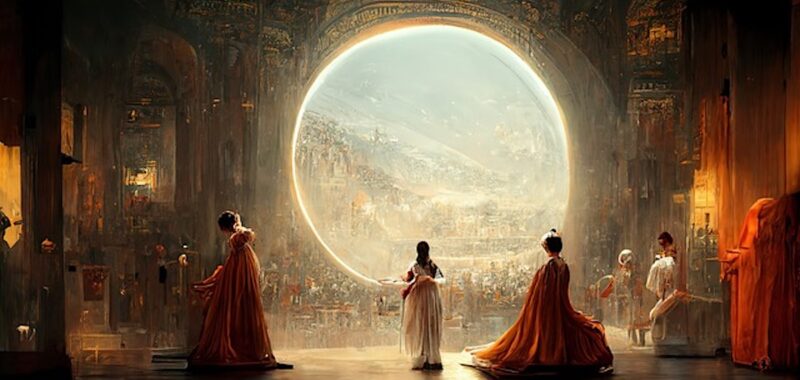A Colorado artist who sparked controversy when his AI-generated work beat out human artists at a local art competition in 2022 is asking courts to grant him copyright protection over his work.
Jason M. Allen first submitted a copyright application for his piece “Théâtre d’Opéra Spatial” (2022), created using the generative image program Midjourney, to the United States Copyright Office after his big win. The office’s response, however, set off a chain of legal proceedings concerning his authorship of the work.
Allen said that the US Copyright Office not only denied his petition but determined that “it was Midjourney — not Mr. Allen — that produced this image.”
In September 2023, the Copyright Review Board upheld the original rejection of Allen’s Midjourney work after he refused to disclose which parts of the piece were created using AI and which were added or modified by the artist.
A year later, Allen is appealing the board’s denial, alleging that unauthorized entities are monetizing his creation, including via reproductions sold on Etsy.
“We filed this appeal because the Copyright Office unjustly denied my client’s ability to protect his AI-assisted work through the Copyright system and receive the enhanced damages that come with federal protection of a creative work,” Allen’s attorney Tamara Pester Schklar told Hyperallergic.
In the appeal, filed on September 26 with the US District Court for the District of Colorado, Allen also alleges that negative media attention surrounding “Théâtre d’Opéra Spatial” may have influenced the copyright office examiner’s judgment.
The US Copyright Office declined to comment, citing pending litigation.
Pester told Hyperallergic that the Copyright Office’s judgment “raises profound questions about the role of AI in the creative process and the nature of creativity itself.”
“It’s important to clarify that when a human uses a machine to create a work, the human should still be considered the author,” Pester continued.
The appeal details Allen’s process in creating the captivating image, stating that he prompted the generative AI program 624 times, a process requiring “more than the bare minimal mental effort.”
In another similar case, a Washington, DC, court denied a copyright request last month by Stephen Thaler for his 2012 work “A Recent Entrance to Paradise,” created using DABUS, citing lack of human authorship.
But, Pester said, that decision reveals a gap in the definition of artistic authorship.
“The Copyright Office’s refusal of registration, combined with the decision in Thaler that said a machine cannot be an author, leaves a void in terms of who owns a work that is AI-assisted,” Pester said.

